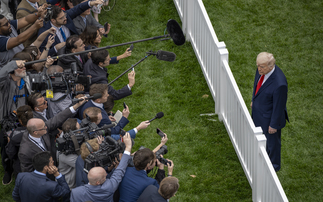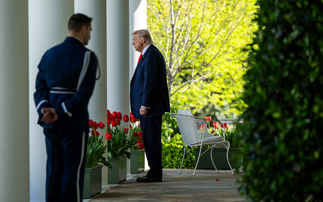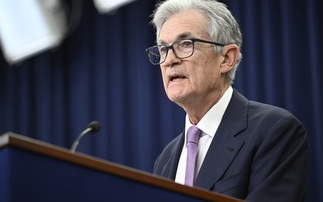In this second of a special three-part Big Question, managers tell Investment Week that investors need to keep a more vigilant and realistic eye on the economy now that Donald Trump has begun his first term as US President.
Don Smith, chief investment officer at Brown Shipley
A recipe for currency depreciation
The Trump economic programme represents, in essence, a fiscally-charged boost to economic growth. This has elevated US treasury yields and raised economic growth inflation expectations, which has, in turn, provided considerable support to equity markets.
But while this has been hugely dollar supportive, crucially it is built on an assumption that the fiscal stimulus will work to drive growth forwards against the building winds of cyclical economic behaviour.
According to the US National Bureau of Economic Research, the length of the current US economic expansion stretches over seven years making it the fourth longest on record. There are no straws of impending slowdown in the air, but it remains a significant risk for an economy at such a mature stage of its cycle.
If cyclical forces do come to bear on the economy and the dollar, this would likely occur against a far-less-supportive fundamentals backdrop with the fiscal deficit widening and US debt-to-GDP ratio on a much higher trajectory.
This is a recipe for currency depreciation and represents a significant risk for the dollar.
Jake Robbins, manager of the Premier Global Alpha Growth fund
Protectionism will backfire
Markets moved quickly to price in the perceived positives of a Trump Presidency, namely lower taxes and massive infrastructure investment. These policies should typically boost economic growth and equity markets, while seeing bonds sell off on the expectation of faster hikes in interest rates.
However, Trump is not entirely positive for the prospect for economic growth. His anti-free trade and protectionist tendencies pose a significant threat to world trade.
If he does indeed raise trade barriers as he has repeatedly suggested, then the cost of doing business globally will rise, which would be expected to depress economic growth.
The likes of China and the EU are unlikely to stand idly by if the US imposes restrictions on their exports and a trade war would be extremely damaging to a still fragile global economic recovery.
In the immediate aftermath of Trump's victory, markets have very much focused on the benefits of increased fiscal stimulus.
However, if his priorities turn out to be protectionist rather than expansionary, then it is distinctly possible that we could see a rapid reverse of the market moves seen over the past few months.
David Battersby, investment manager at Progeny Asset Management
Rising debt a threat to policy
Quantitative easing and the injection of money into markets significantly increased the gap between the rich and the poor, fuelling populist sentiment.
Since Trump's election, equity markets reacted positively, expecting fiscal easing in the form of tax cuts and increased government spending.
But the question investors should ask is: how much freedom will the Senate allow him? Trump has already promised that the US 'will reach amazing new heights', and with US GDP growth at 3.5% (ahead of 1.7% inflation), it is easy to think 2017 should be a strong year for the US economy, evidenced by its ability to withstand steadily rising interest rates thus far.
However, with renewed spending on infrastructure in a period of already full employment, the economic life cycle may be shortened as debt continues to soar.
Investors should also be concerned about the new administration's lack of experience - we have already seen that market volatility can be exacerbated by political events.













